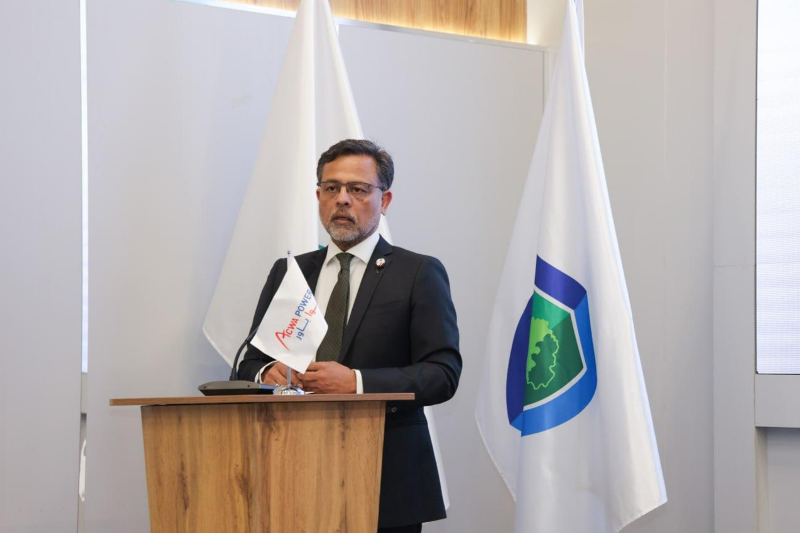
- 19.02.2025
- 719

The project, aimed at studying methods to reduce the impact of wind turbines on bird populations, is being implemented by ACWA Power in collaboration with the Ministry of Ecology, Environmental Protection and Climate Change.
During the conference, experts emphasized that while wind energy plays a crucial role in the transition to sustainable power sources, minimizing its environmental impact is essential. As part of the Bird Flight Diverter (BFD) experiment, ACWA Power is testing innovative technologies to reduce the risk of birds colliding with wind turbine blades. Special attention is given to the Asian Houbara Bustard, a rare and endangered species. Uzbekistan is a vital habitat for this species, and a significant portion of its population resides near the wind farms.
The press conference brought together leading international experts in ornithology and biodiversity conservation, including J.P. Silva, an ecologist and biodiversity conservation expert, researcher at Biopolis-CIBIO and the University of Port (Portugal); Paul Dolman, a professor at the University of East Anglia specializing in wildlife conservation and ecosystem management; and Keith Scotland, a leading international expert from the UK on bird conservation and their interactions with wind energy infrastructure.
Experts outlined that over the course of a three-year study, bird mortality (focusing on medium and large species) will be monitored weekly along the entire length of the power lines.
"To determine which type of bird flight diverter (BFD) is most effective, we will install each type in sequences of eight spans, alternating with control sections without BFDs. All BFDs will be installed according to the best available practices and technical specifications," explained Paul Dolman.
A key part of the experiment involves tagging 100 captive-bred and 100 wild birds, with the goal of marking a total of 300 individuals.
The experiment is expected to yield not only be the best mitigation of a 300-kilometer power line, backed by field data, but also the development of best practices for using the most suitable type of Bird Flight diverters (BFD) for the most vulnerable bird group in Uzbekistan and all of Central Asia
Additionally, the study will gain valuable insights into the scale of bustard mortality on power lines, allowing us to accurately assess future risks and develop effective strategies for their minimization and compensation.
Source: https://gov.uz/en/eco/news/view/36584
Information service of JSC «NEG of Uzbekistan»
http://t.me/uzmetaxborotxizmati









